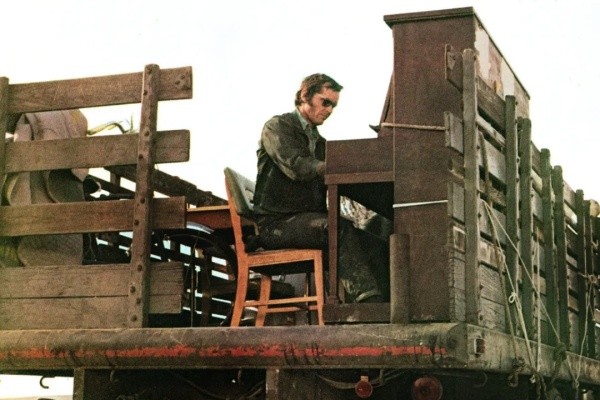Alea’s groundbreaking Cuban film may not be powerfully visceral, but its radical ‘docu-fiction’ style does encourage deep contemplation of the personal in relation to the political.

REVIEW #1,937
Dir. Tomas Gutierrez Alea
1968 | Cuba | Drama | 98 mins | 1.66:1 | Spanish & English
Not rated – likely to be NC16 (passed clean) for some nudity
Cast: Sergio Corrieri, Daisy Granados, Eslinda Nunez
Plot: In the aftermath of the Bay of Pigs Invasion, Sergio, a writer, stays behind in Cuba while his family escapes to Miami. Sergio is pessimistic about the revolution’s promise to bring sweeping change to his country, and he squanders his days on the streets of Havana looking for female companionship.
Awards: –
Source: The Film Foundation / Instituto Cubano del Arte e Industria Cinematograficos
Accessibility Index
Subject Matter: Moderate – Politics, Self
Narrative Style: Slightly Complex – Fragmentary
Pace: Slow
Audience Type: General Arthouse
Viewed: Criterion Blu-ray
Spoilers: No
Restored by The Film Foundation, Cuban’s cinema most famous work, Memories of Underdevelopment, will certainly get more exposure from the larger community of film enthusiasts.
It is not quite as powerful as I thought it would be; in fact, its power will be more acutely felt with a better understanding of Cuba’s sociopolitical context, and with repeated viewings. However, director Tomas Gutierrez Alea’s film remains fascinating for several reasons.
First, its lead character, Sergio (Sergio Corrieri), is a middle-class intellectual who appears apathetic to his country’s new political normal. While his family has fled to the US, he chooses to stay, spending his time thinking about women and wandering the streets.
Second, the film was made in the spirit of the French New Wave with jump cuts, the use of montage, and dialectical interplay between fiction and documentary elements (e.g. newsreel, archive footage).
Third, although released in 1968, the film’s story is set a few years into Fidel Castro’s revolutionary regime, and at the height of the Cold War as marked by historic world events such as the failure of the Bay of Pigs invasion, and the existential threat of the Cuban Missile Crisis during the early 1960s.
“One thing about people that upsets me is their inability to sustain something without collapsing… that’s a symptom of underdevelopment: the inability to relate things, to gain experience, develop.”
It can be a fragmentary work to some, with many moving parts that may not respond to each other coherently, but its radical docu-fictive and occasionally meta-cinematic style, when combined with Alea’s commitment to portraying Sergio’s subjectivities (his chaotic psychological states as marked by erotic desires and ennui) through film language, might feel breathtaking to behold, even if only after the fact.
Memories of Underdevelopment is a milestone of world cinema from Cuba’s most well-known filmmaker. It is as much a historical record of a country at an unprecedented point in their political history as it is an intimate portrait of how personal apathy towards revolution might ironically produce a greater sense of clarity.
Sergio complains of underdevelopment—of Cuban women, society and intellectual thought—but his ‘memories of underdevelopment’ as it were are in fact symptoms of his ‘underdeveloped’ self.
Approaching Alea’s seemingly fractured film about a fractured man—and a fractured country—at the throes of change more than 50 years later, we realise that the director’s vision couldn’t have been any clearer.
Grade: A-
Trailer:











